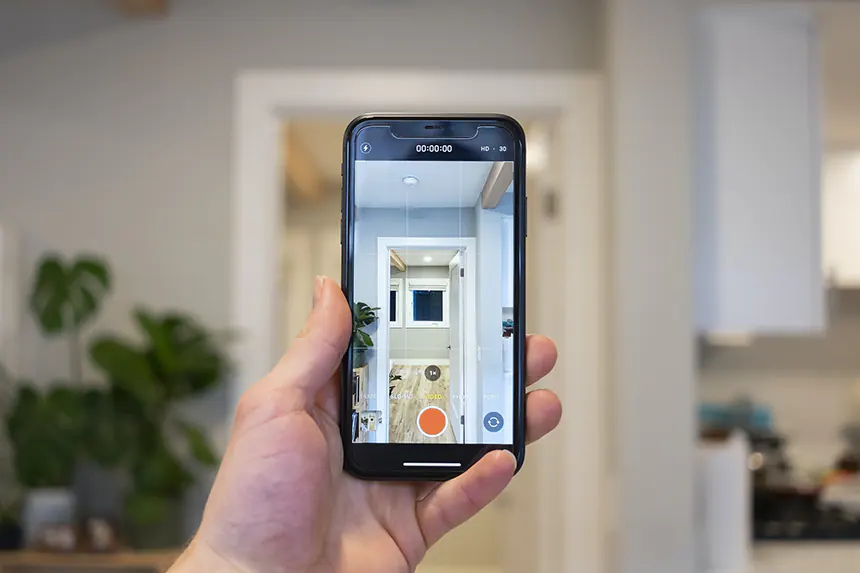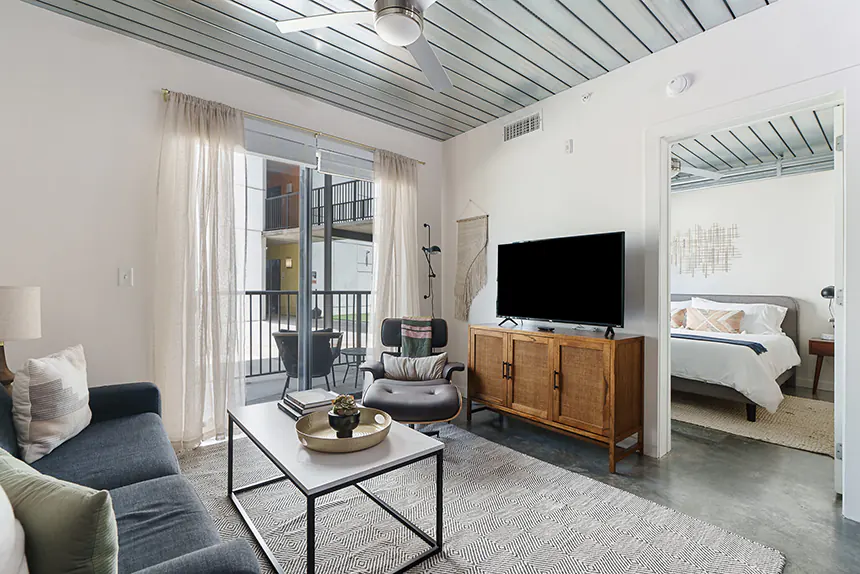An edited version of this article was initially published in the July 2020 issue of the Houston Apartment Association’s ABODE magazine and as an article on LinkedIn posted by the author.
What should the ‘new normal’ look like in a world of social distancing for multifamily leasing offices and staff?
As I write this article, Houston enters its third month of Harris County’s ‘Stay Home, Work Safe’ order. Apartment amenities are starting to open up again, including gyms and pools. Leasing offices are resuming in-person tours. Scientists say that it takes 66 days to establish new habits, so does it mean that will everything return back to ‘normal’? Should it? Or will a ‘new normal’ establish itself?
Out of any crisis comes opportunity, and so I think that a number of practices and workarounds developed to enforce social distancing will prevail. Because the truth is, many consumers would probably be happy for certain standard practices in the multifamily world not to return…
During COVID-19, owners and operators scrambled to find a way to continue leasing apartments during enforced social distancing. With 90% of apartment renters starting their journey online, high-quality professional photography with a wide-angle lens was already table stakes in the sector.
Apartment communities rushed to create virtual tours, typically using Matterport’s 3D platform to create a “digital twin” of any space – something that can now be done in-house with their recently launched Matterport for iPhone app. According to their research, listings with a 3D walkthrough experience lead to three times more online engagement and 87% more views.
Users are 95% more likely to call and 90% of agents believe it helps them build a stronger brand in the marketplace. Marketing professionals will also tell you that video can drive engagement and revenues, so consider creating video content that showcases your community.

While some people are happy to lease an apartment sigh-unseen, many will not. But that doesn’t mean they need or want a leasing agent to take them around. Or even to have to call to schedule a tour – there are simple tools to manage a calendar online, such as Calendly.
Research has shown that 75% of Millenials avoid phone calls because they find them time-consuming and 81% get apprehension anxiety before summoning the courage to make a call. They send emails and often prefer instant digital communications such as Whatsapp. If people don’t like making phone calls, then it stands to reason that many groups of consumers, from Millennials to introverts, don’t enjoy interpersonal interactions with leasing agents. And to be honest, they shouldn’t have to….
There is a range of technologies that make it possible to take a self-guided tour around a community. While realtors have been using lockboxes for 65 years, these present security and logistical challenges. But in the vacation rental industry, it’s now relatively common to be able to do a ‘self-check-in’, even in apartment communities.
Travelers receive instructions and a time-limited, one-time code to pick up their keys from a smart lockbox. Keycafe is one such company to offer this technology, which even includes an ID verification service that uses facial recognition to compare a selfie to a person’s identity document to allow them to pick up keys and fobs. Another company called Lynx (previously known as VirtualKey) connects a whole ecosystem of smart devices, such as smart locks on doors, smart lockboxes, intercom systems, garage doors, thermostats and HVAC systems, smart sensors for leaks, motion, and vibration, lights, switches, outlets, water valve controls, and voice assistants from Google and Amazon’s Alexa.
But what other interactions between residents and community staff might disappear for good or become virtual?
The rise of e-commerce has been gradually filling apartment offices and lobbies with more and more packages for a number of years now. And during the coronavirus pandemic, online retail orders increased 146%!
That’s created a lot of risks for both community staff and residents through increased interactions, not to mention the inconvenience. Even package lockers from Amazon don’t fully solve this problem, due to oddly-shaped or oversized-packages requiring human assistance.
Austin-based company Fetch solves this problem by receiving and safely storing all resident packages and allowing residents to schedule a convenient time for Fetch to deliver them directly to their door.

So what other interactions does your team have with residents? If you don’t know, then you might consider taking a simple log to keep track of these. Consider how many of these in-person interactions were really required. There’s an increasing trend towards self-service: provide access to content that usually sits inside people’s heads online in a knowledge base (take a look at Zendesk Guide and Notion.so for example).
You can supercharge this by connecting it to chatbots. Or for residents that prefer to speak to someone, you can still include a phone number or online chat experience (that person doesn’t need to sit in your community’s office though – with access to a well-written knowledge base, they can serve residents of multiple communities).
Tools such as Front App can provide a unified inbox experience that handles everything from email to chat, Whatsapp to phone calls. And you can tag inquiries to analyze the reasons prospective renters and residents contact you. I’m still amazed at how many communities continue to handle maintenance requests from residents with pen and paper… The 21st Century replacement is something as simple as an online form from Google Forms, Typeform, or Airtable.
Just add a weblink to your community’s website or resident portal, and a few printed signs around the building.

So perhaps in the future, there can be a virtual leasing office option. Renters will search online, view virtual tours and videos of the community, and book a self-guided tour online. They’ll select a time slot (and why limit this to a traditional 9 am-5 pm schedule), and receive instructions and a code to let themselves into the community and selected apartments, once they’ve verified their ID.
During their tour, they can send instant messages via Whatsapp with any questions that they have (answered by a chatbot or a virtual leasing office agent), or even ask questions through an Amazon Echo speaker in the apartment, programmed with Alexa Skills to answer any specific questions they might ask a leasing agent (Houston-based company Ask DOSS can help with this). And of course, if they want to lease an apartment, everything can be done digitally. And they can pick up their keys from a smart lockbox, never needing to meet or interact with a physical person.
This vision might horrify some in the leasing office, but it would delight many consumers when the world returns to normal… It doesn’t mean that leasing agents will disappear, just that the leasing office should satisfy a broader range of renters purchasing and communication preferences, rather than having a one-size-fits-some process.
Lodgeur helps apartment operators boost their occupancy. We turn empty units into flexible furnished rentals and manage them to attract a new type of resident.
Find out more about partnering with Lodgeur.
